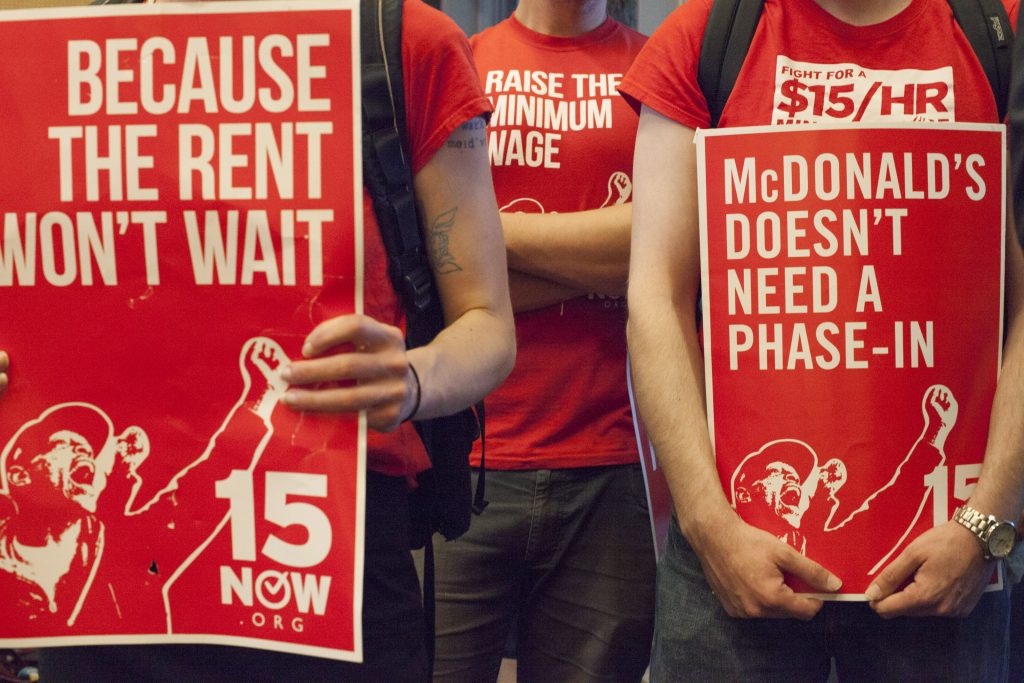
The idea of labor as a commodity, the creation of a class of people subject to competitive rates who can be bought and sold on the open market is inherently dehumanizing, but we live in a capitalist world addicted to consumption, increased productivity and shareholder profit.
Accordingly, though relegated to virtual wage-slavery and perpetual poverty, our lowest paid workers additionally suffer the indignity of hunger, exhaustion and insecurity in support of their families. Measures intended to ameliorate their worst economic pain include a minimum wage, but the business community and its political allies have successfully resisted any meaningful increase arguing that it would be bad for business, prices and the consumer. Such arguments are not new.
As the devastating poverty of the industrial revolution began to be felt across England at the beginning of the 19th century policies were implemented to influence the availability of labor to sustain the supply of underpaid workers. At the heart of these policies were “the powerful pangs of hunger.” Economists of the time such as Edmund Burke and Jeremy Bentham disagreed about methods, but both agreed, in the words of economic historian Karl Polanyi, that when it came to finding workers “If hunger would do the job, no other penalty was needed.
We still find this bias among those who oppose an increase of the minimum wage, which has fallen far behind inflation. Hunger and want remain coercive tools of modern capitalism, which in the current withering of government supported social safety nets provide the supposed inducement the lowest paid workers need to fill jobs others find distasteful.
Adjusted for inflation, the federal minimum wage of $7.25 (last changed in 2009) should today be $10.25/hr.; California’s minimum is $9/hr. In Sonoma, where per capita homeowner income is well above state average and rents beyond the reach of many, where tourism revenue has never been higher and money for cultural institutions like art museums and yearly wine auctions numbers in the millions, a minimum wage of $15/hr. should be a slam dunk. Still far below the hourly wage most families need, this amount would nonetheless help those lowest on the worker-totem-pole to regain some measure of self-sufficiency.
If the City of Sonoma is to retain any semblance of social fairness to counter balance its multi-million dollar homes and extravagant wine country lifestyle, it must respect and understand that economic equity is essential. If this is not addressed, those who work in Sonoma will commute from other towns and cities where rents are less and the cost of living lower. Perpetuation of a “master/servant” society risks the alienation of important members of our community, upon whose goodwill and hard work many businesses in the area depend. To treat these workers as under-paid wage slaves simply because it is possible to do so is to continue to unfairly exploit labor and foster poverty.
Though in 1832 Thomas Malthus advocated a form of Darwinian selection in the matter of labor and class which accepted starvation and war as legitimate forces in moderating unemployment, our 21st Century multicultural society must rightly reject such views as barbaric. The present minimum wage, however, is exactly that and for that humanitarian reason alone should be raised by the City of Sonoma to $15/hr., just as Seattle and San Francisco have recently decided.